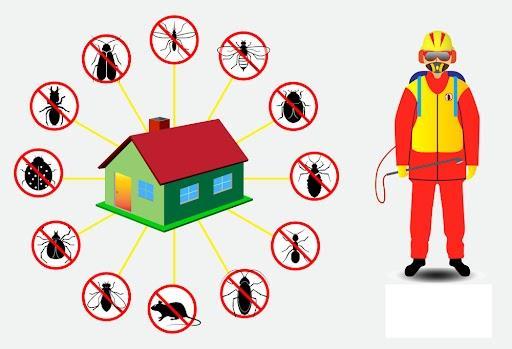Why Do Ants Enter Your Home?
Before diving into methods for eliminating ants, it’s important to understand why they invade homes in the first place. Ants are attracted to food, water, and shelter. They are always in search of food sources, especially sugary or greasy substances. Once they find a food source, they leave behind a scent trail that attracts other ants to the same spot. This is why ant colonies can quickly grow in numbers and invade different areas of your home.
Ants can enter through the smallest cracks or gaps in your home's exterior. This is why sealing potential entry points is crucial for preventing future infestations.

Natural Methods for Ant Control
There are several natural methods to get rid of ants without relying on toxic chemicals. Here are some of the most effective:
1. Vinegar and Water Solution
Vinegar is a versatile household item that can be used to repel ants. Ants dislike the smell of vinegar, and it can disrupt their scent trails, making it difficult for them to navigate. To use vinegar as an ant deterrent, mix equal parts of white vinegar and water in a spray bottle.
Spray the solution directly on the ants and along any visible trails. Wipe down the areas afterward to remove the vinegar smell. This is an effective and non-toxic method for getting rid of ants.
2. Essential Oils
Certain essential oils have ant-repelling properties. Peppermint oil, in particular, is highly effective in driving ants away. Other oils such as tea tree oil, eucalyptus oil, and lemon oil can also deter ants. To use essential oils, mix 10-20 drops of your chosen oil with water in a spray bottle. Spray the solution directly on the ants or around the entry points. Not only will this keep ants at bay, but it will also leave your home smelling fresh and pleasant.

3. Cinnamon and Cloves
Cinnamon is another natural deterrent for ants. Ants dislike the strong scent of cinnamon, and sprinkling ground cinnamon around their entry points or along trails can help deter them. Whole cloves can also be placed in areas where ants are active. The smell will repel the ants and discourage them from entering your home. This method is simple and effective, and it doesn’t involve any chemicals. Read more for your information…
4. Diatomaceous Earth
Diatomaceous earth is a powder made from fossilized remains of tiny organisms. It’s a natural substance that is safe for humans and pets but deadly to ants. When ants come in contact with diatomaceous earth, it dries out their exoskeletons and kills them. To use diatomaceous earth, simply sprinkle it around ant entry points or on the trails they leave behind. Be sure to choose food-grade diatomaceous earth, as it is non-toxic and safe to use around the home.
5. Cucumber Peels
Ants are repelled by the scent of cucumbers. To keep ants away, place cucumber peels or slices near the entry points of your home. You can also place them near ant nests or areas where ants are active. This natural method is not only effective but also safe and inexpensive.
6. Borax and Sugar Bait
Borax is a naturally occurring mineral that can be used to create a homemade ant bait. Mix a small amount of borax with sugar to attract the ants. The sugar acts as bait, while the borax kills the ants once they ingest it. However, this method should be used with caution if you have pets or small children, as borax can be toxic if ingested. Place the bait in areas where ants are frequent, and keep it out of reach of pets and children.
7. Citrus Peels
Citrus fruits such as lemons and oranges contain compounds that ants find repulsive. Place citrus peels around ant entry points or crush them and rub the juice on the affected areas. The strong scent will deter ants from entering your home. This is a non-toxic and eco-friendly way to repel ants.
8. Ant-Repellent Plants
There are several plants known for their ability to repel ants. These include peppermint, tansy, and lavender. Planting these around your home’s perimeter or in pots near doorways and windows can help keep ants at bay. Additionally, these plants can add beauty to your home’s exterior while serving as a natural barrier to pests.


